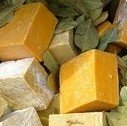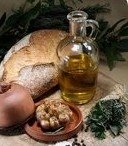Great information on Growing Blueberries
by Maria O. Campos
(7 Ashland Tr., Chester, NJ 07930)
I have learned a lot. Your information is very detailed and informative.
I live in the U.S. and the Algarve, Portugal,(Retired). I have about three acres of sandy, well-drained land with some very old almond trees, and would like to make it productable. Planting blueberries is one of my choices.
My biggest concern is, will the blueberries endure the hot dry summer, even if I have water drip irrigation? The winters here are mild with lots of rain, however I am on a hill, so there is no water accumulation.
Any advice would be greatly appreciated. Thank you very much,
Sincerely,
Maria O. Campos
Comments for Great information on Growing Blueberries
|
||
|
||
Did you find this page helpful?
Sharing is a way of saying, "Thanks!"
Follow Us and Keep Up to Date
Go back to the Home Page





